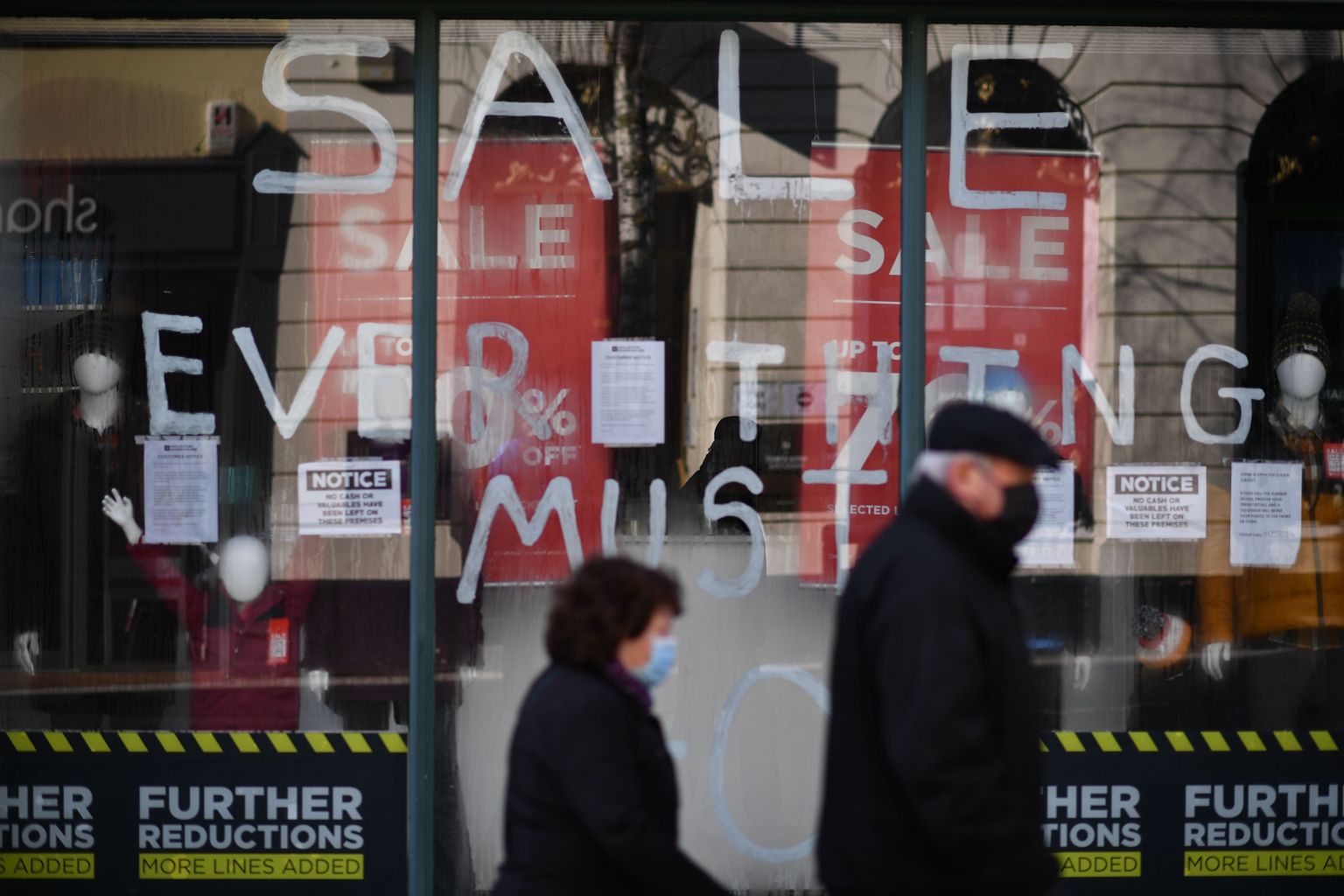G-7 finance chiefs discuss how to steer economies out of crisis
Sign up now: Get ST's newsletters delivered to your inbox

Pedestrians walk past a closed store with a sale sign on the window in Maidstone, south-east England.
PHOTO: AFP
Follow topic:
LONDON (REUTERS) - Finance chiefs from rich countries discussed ways to steer the global economy out of its worst slump since the Great Depression and agreed on the need to solve a tax dispute that has become a test case for US re-engagement under new president Joe Biden.
Britain, which is chairing the Group of Seven (G-7) industrialised nations this year, said it had also called for more support for the most vulnerable countries during the coronavirus pandemic.
"Ministers and central bank governors exchanged views on how best to shape and respond to the phases of the global recovery from Covid-19, including supporting workers and businesses in dealing with the pandemic while ensuring sustainability in the long term," the British finance ministry said.
Italian Economy Minister Roberto Gualtieri said the G-7 had committed to continuing coordinated action to support the economy.
"The withdrawal of policy support is premature," he wrote on Twitter.
US President Biden has proposed a further US$1.9 trillion (S$2.5 trillion) in spending and tax cuts on top of US$4 trillion of coronavirus relief measures enacted by his predecessor Donald Trump.
British finance minister Rishi Sunak is expected to say next month that he will extend his economic rescue programmes and that fixing public finances will have to be addressed later.
Britain said G-7 officials agreed that making progress on reaching "an international solution to the tax challenges of the digital economy" was a key priority.
Countries have been trying to revive attempts at a global approach to taxing giant digital firms, many of them American such as Amazon and Google, after progress was blocked by Trump's administration.
Britain called on G-7 countries to agree a joint approach to taxing Internet giants by mid-2021, a deadline agreed by the wider Group of 20 nations.
Sunak stressed "the moral, health and economic case" for global vaccine distribution and said international financial institutions had to help vulnerable countries respond to the pandemic.
The G-7 had been expected to back a new allocation of the International Monetary Fund's own currency, known as special drawing rights, to help low-income countries hit by the coronavirus crisis.
Officials from the United States, the IMF's biggest shareholder, had signalled they were open to a new issuance of US$500 billion, sources said on Thursday - another shift in position by the Biden administration.
Sunak called on private creditors to give debt help to the poorest countries and said climate change and nature preservation would be priorities for Britain's G-7 presidency.
World Bank president David Malpass said the G-7 had a "good discussion" of inequality, Covid-19 vaccinations, climate change, economic vulnerabilities and debt reduction for poor countries.

